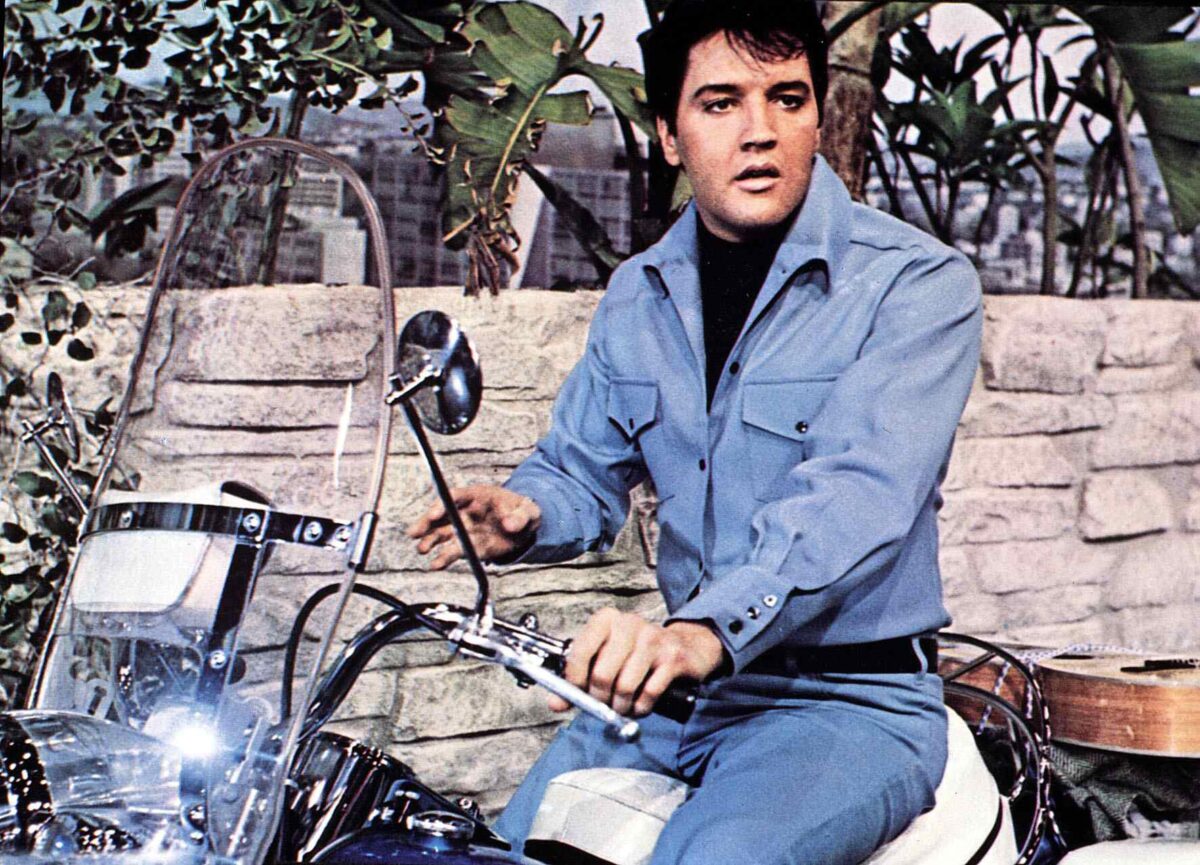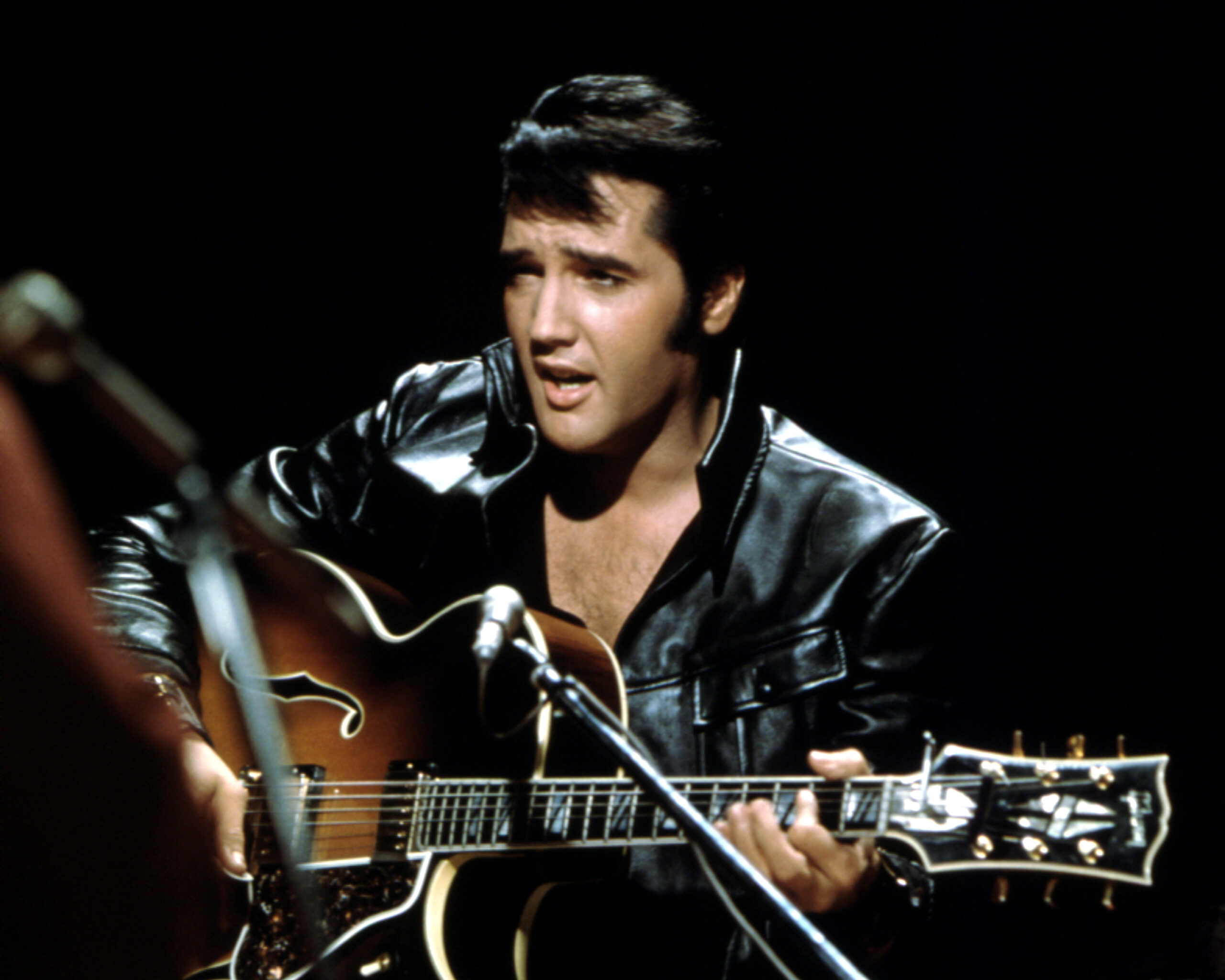Unless you were born yesterday, you surely have at least some awareness of iconic 20th century musician Elvis Presley. Even if the King of Rock and Roll has no place on your Spotify Wrapped, you’ve surely heard your fair share of hit songs, catchphrases and impersonations over the years. The singer, often known by his first name alone, was responsible for revolutionizing the landscape of music throughout the 1950s and beyond, enthralling millions of listeners around the globe with his hypnotic blend of provocative dance moves and infectious vocal inflections. Today, his musical stylings are obviously quite dated, though it can’t be overstated just how much Elvis Presley propelled the culture of rock and roll into the mainstream.
Though the singer has been deceased for nearly half a century, his legacy still lives on to this day, largely in the form of music biopics like 2022’s Elvis and the recently released Netflix documentary Return of the King: The Fall and Rise of Elvis Presley. Since Elvis has had something of a renaissance with these modern films, it only makes sense that many music fans are thinking about his overall net worth. While the singer surely made millions over the course of his illustrious career, the actual figures of his estate may shock you. So, let’s take a deep dive into Elvis Presley’s life, career, and financial portfolio, and see what we can learn about his impact before he “left the building” one last time.
Looking Back On Elvis’ Early Life And Career Beginnings

Long before he was rocking stages and causing a moral panic among parents of hot-and-bothered teens, Elvis Presley was born to a humble Tupelo, Mississippi family. His father worked various odd jobs over the course of his life, never truly settling on one discipline, and the family often relied on the kindness of their church and community to pay for their basic expenses. When Elvis was only three, his father attempted to commit fraud by altering a check from his employer, which resulted in his incarceration. Shortly thereafter, the Presley’s lost their home, and had to live on the streets for a brief period.
Despite his difficult upbringing, Elvis took an early interest in music and even performed in a local Fair and Dairy Show when he was ten. His family took note of his creative aspirations and gifted him a guitar on his eleventh birthday. Though he received lessons on the guitar, he never properly learned how to read sheet music, instead choosing to play and sing by ear. In his adolescence, Elvis Presley was extremely shy, though he did take on a few gigs singing and performing for local radio stations. Eventually, he managed to catch the attention of local music industry executive Sam Phillips, who owned a recording studio in Memphis, Tennessee.
Elvis frequented the studio in hopes of making solo recording demos and eventually impressed Phillips with his ability to bring genres and styles typically associated with Black musicians to his own work. As a youth, Elvis was ostracized and bullied by many of his peers, which led to him hanging out in unconventional spaces such as Beale Street, where he was inspired by the greatest Black musicians of the time. This blues influence would come to be a central focal point of Presley’s success, as local radio stations began playing his recording “That’s All Right” with great frequency.
Elvis Presley’s Music Career
Shortly after finding mainstream success with “That’s All Right,” Elvis Presley began regularly playing live shows, and even signed a recording contract with RCA Victor. While touring his new material, the rising star developed a set of provocative dance moves, most often referred to as the “Rubber Legs” dance. Though the dance seemed to be an expression of rhythm and sensuality, his bandmates recalled Elvis’ original leg movements to be a nervous tick, utilized to escape from stage fright. Luckily, The King began growing more confident as he performed, and eventually went all-in on the dance routine, expanding his repertoire of moves with each new show. By 1954, Presley had performed at Nashville’s historic Grand Ole Opry, with a pair of shows that exposed his work to nearly 200 radio stations across the contiguous United States.
In 1955, Elvis Presley was touring across the nation, with a steadily growing fanbase of teens who went wild for his every move. After numerous record labels attempted to poach the young artist from RCA Victor’s recording contract, the studio renewed him for a then-unprecedented sum of $40,000. Elvis released his self-titled debut LP in 1956, and continued recording music throughout the remainder of his life. While the father of one would eventually go on to diversify his income with a number of other interests, his explosive music catalogue obviously serves as the largest contributing factor to his net worth and estate.
By the end of his life, Presley had released 24 solo studio albums, as well as 17 soundtrack albums designed to accompany films. To date, the singer has sold over 600 million records worldwide, cemented himself as a cultural staple and hit number 1 on the global recording charts with 21 albums and 25 singles. He was also said to have made over $1 million per show during the height of his career, which is especially impressive given the voracious nature with which he toured. For two decades, Elvis was considered a “cash cow” for RCA. His management even cashed in on the anti-Elvis crowd with prudent merchandising ventures, which included buttons and pins which simply stated “I hate Elvis.”
Army Service And Hiatus From Entertainment
In 1958, Elvis Presley was drafted into the United States armed forces, placing an effective halt on any tours and new releases. Though he was out of the public eye for several years, RCA continued to release music from his back catalogue to retain fan interest. While his time in the service endeared the icon to the American public, it led to many complications in his personal life, which would continue to plague him until his final days. For starters, his mother fell quite ill while he was in the army and died only days after Elvis was granted special permission to visit her. His extremely close relationship with his mother meant that he took her death exceptionally hard, and those close to the super-star say that he never truly recovered.
Furthermore, Presley was prescribed amphetamines during his deployment, which rapidly became the basis for an unhealthy addiction. The prescription was normal for the time period, though Elvis’ commitment to amphetamines was generally regarded as “evangelical” in nature. The artist-turned-soldier was known to tout the pills as miracle drugs, citing their alleged ability to improve energy, support weight loss and gain strength. Once his military service concluded in 1960, Elvis became difficult to manage, unwilling to record new original songs and generally apathetic toward the music industry, opting instead to pivot to acting in musical comedy films.
Elvis Presley’s Controversial Film Career
Though Elvis Presley is better known for his music today, the singer appeared in dozens of films throughout the late 1950s and 1960s. He made his screen acting debut in the 1956 Western musical “Love Me Tender,” before going on to establish himself as a force in the musical circuit. Professional critics panned nearly every Elvis film on the market, though the movies were guaranteed money-makers for general audiences. Studio executives came to rely on Elvis for brand recognition, though many fans began to see the rock and roll icon as an unserious performer, causing his music career to take a significant dip.
By the early 1970s, Elvis stopped appearing in movies entirely, having taken lead credits in a staggering 33 pictures. His best known work from this time was 1957’s Jailhouse Rock, which is often associated with the singer in pop culture depictions of the 21st century. Most of Presley’s film ventures lack the quality or budget to serve as modern classics, leaving many of them forgotten to time, though the singer surely made millions in salary and back-end percentages for his front-and-center inclusion on the projects, not to mention a cut of the marketing and advertising budget.
About The Legend’s Overall Net Worth And Estate Figures
By the mid 1970s Elvis Presley had fallen into extremely poor health. The star was mired with prescription drug addictions, personal controversies and general fatigue, which left him largely unable to perform his music or live life outside of his hotel suite. Upon his death in 1977, Elvis is said to have held a total net worth of $5 million. This accounts for his reported worth of $20 million when considering inflation, per Celebrity Net Worth. While these figures are arguably impressive, especially for the time, the number still pales in comparison to what one might expect given Elvis Presley’s massive impact.
In fact, the “Are You Lonesome Tonight” hitmaker was known to have much more money just several years before his death, though his spending became out of control towards the end of his life. Presley routinely dropped million dollar sums on real estate, gifts and a contentious divorce. He also spent hundreds of thousands on prescription drugs and his large entourage. Still, he is said to have drawn over $22 million in merchandise sales alone before his army deployment, meaning his handlers and studio execs likely earned generational wealth on the back of the sparkle-vested King.
Today, Presley’s legacy is on full display in places like Atlantic City and the Vegas Strip, where Elvis impersonators can make up to six figures annually. The 2022 Elvis biopic grossed nearly $300 million at the global box office, making it the second-highest grossing music biopic of all time. Clearly, his estate is still worth quite a pretty penny in 2024 and beyond, even if the singer himself died with less cash than fans might expect.

